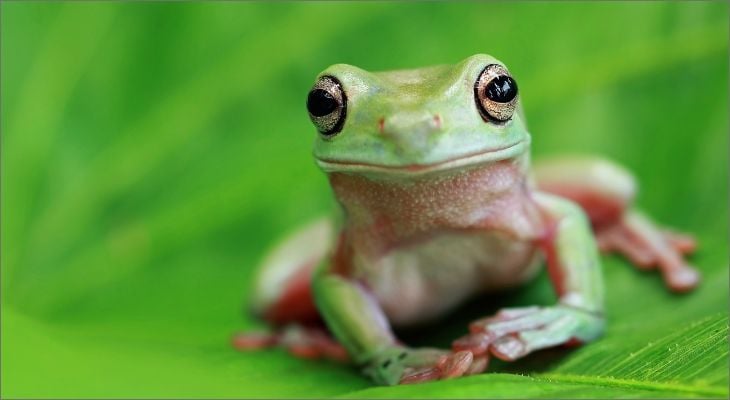
If you want an interesting change of pace or simply don't have the right environment for a dog or cat, a frog or toad might make the perfect companion for you. First, however, you need to acquaint yourself with these fascinating creatures and their requirements.
Frogs Versus Toads: What's the Difference?
Toads technically count as a type of frog. However, these creatures still have some noteworthy differences. The most important difference is the fact that toads always have some degree of toxin in their skin, which means that owners need to wash their hands thoroughly after handling them. Toads' skin also feels and looks rough, dry, and bumpy, while frogs have smooth, moist skin.
Frogs also display more mobility than toads, if only because their longer, more powerful legs allow them to jump away from perceived threats or toward prey. By contrast, toads are more likely to sit still for extended periods.
What You Should Know Before Taking the Leap
You have to think about the specific conditions your frog or toad may require as you make your selection. Most toads require a terrarium that includes a certain amount of damp soil and a humidity level of 60 percent (which can be achieved through regular misting). Terrestrial frogs need a terrarium, while aquatic frogs require an aquarium. Some species may need a combination of both.
If possible, schedule a veterinary wellness exam before adopting your frog or toad. For example, sick frogs may show signs of a problem known as short tongue syndrome, while sick toads may display breathing problems, lethargy, cloud eyes, and other symptoms.
The Best Species for Beginners
Terrestrial frogs and toads are the easiest ones to accommodate in terms of environment. The Pacman frog makes few demands for beginners, although their cannibalistic nature means that you can't keep two of them together. Among toads, the three species of American toad (Hudson Bay toad, Dwarf American toad, and Eastern American toad) make ideal first-time pets.
General Care Tips
Most frogs and toads thrive in a narrow temperature range, usually between the mid-70s and low 80s Fahrenheit. As meat-eaters, these animals can get their nutrition by dining on insects and worms; the largest ones may eat small mice. Depending on your vet's recommendations, you may need to feed your pet only two or three times a week.
